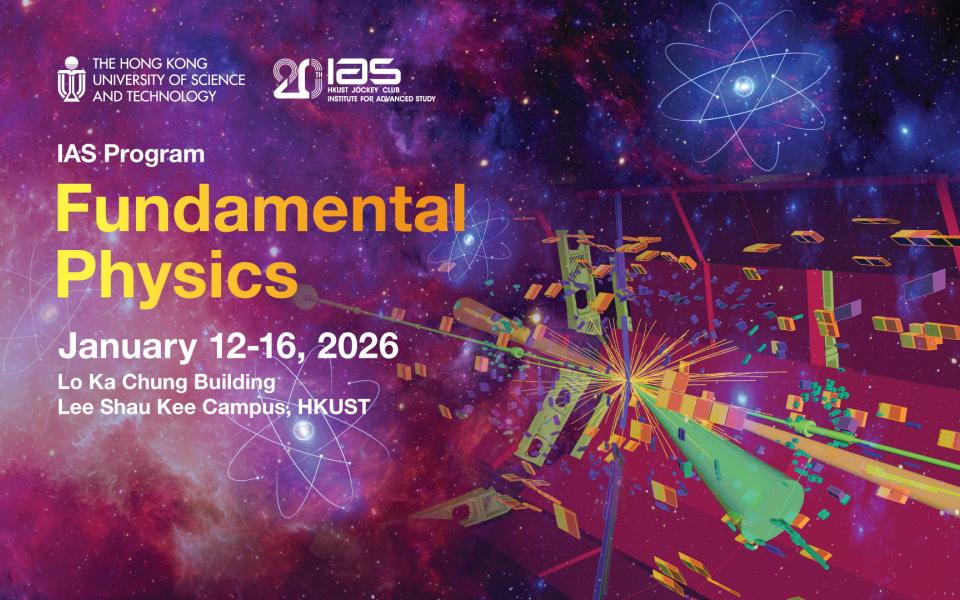IAS Program - Fundamental Physics (2026)
Supporting the below United Nations Sustainable Development Goals:支持以下聯合國可持續發展目標:支持以下联合国可持续发展目标:
Program Website
https://indico.global/e/iasfp2026
Overview
The discovery of the Higgs boson at the Large Hadron Collider (LHC) in 2012 has fundamentally transformed the landscape of high-energy physics. This monumental achievement has shifted the focus of research towards not only precise measurements of the Higgs properties but also the exploration of new physics beyond the Standard Model. Key unresolved questions remain, including the naturalness problem, the nature of dark matter, the origin of cosmic baryon asymmetry, and the origin of neutrino mass. These fundamental puzzles are critical not only for our understanding of the universe but also for the development of future theoretical frameworks and experimental facilities.
In light of these challenges, there is a compelling need for a focused program that brings together experts from high-energy physics and related fields, to facilitate in-depth discussions on how next-generation experimental facilities, such as electron-positron colliders and high-energy proton-proton colliders, muon colliders, can be utilized to address these pressing issues. The e+e- collider, for instance, is envisioned as a precision machine designed specifically for detailed studies of Higgs physics, allowing researchers to measure its properties with unprecedented accuracy. High-energy colliders instead aim for the direct discovery of new physics, potentially revealing phenomena that could reshape our understanding of the universe.
Furthermore, the direct observation of gravitational waves by the Laser Interferometer Gravitational-Wave Observatory (LIGO) in 2015 has ushered in a new era of astrophysical research. This groundbreaking event has opened new avenues for investigating the fundamental puzzles such as dark matter and cosmic baryon asymmetry through multi-messenger astronomy, where various types of astronomical signals - such as electromagnetic radiation, gravitational waves and neutrinos - are integrated to provide a comprehensive understanding of cosmic events. Moreover, technology for quantum precision measurement has made a groundbreaking leap in recent decade, achieving unprecedented sensitivity and accuracy through the principles of quantum mechanics. This advancement has made it a powerful tool for unraveling the mysteries in fundamental physics, capable of detecting weak signals and interactions that traditional sensors may overlook. As technology continues to evolve, quantum precision measurement is expected to probe the true nature of dark matter also and actively advance the exploration of other relevant frontiers. By merging insights from high-energy physics, multi-messenger astronomy, and quantum sensing, innovative research directions can be fostered and understanding of the universe deepened.
At the HKUST Jockey Club Institute for Advanced Study, the program on high-energy physics (or fundamental physics) commenced in 2015. In 2026, a five-day conference will be hosted from January 12 to 16, which will emphasize discussions on future collider projects, and meanwhile bring together experts working on interdisciplinary topics that bridge high-energy physics with astronomy and quantum sensing. This collaborative approach is essential for enriching the overall discourse and promoting innovative research directions. By integrating insights from different fields, it is hoped to advance the collective understanding of the fundamental questions that lie at the heart of modern physics.
Registration
Prior registration is required. Please refer to the program website at https://indico.global/event/15407/registrations/3642/ for details.
